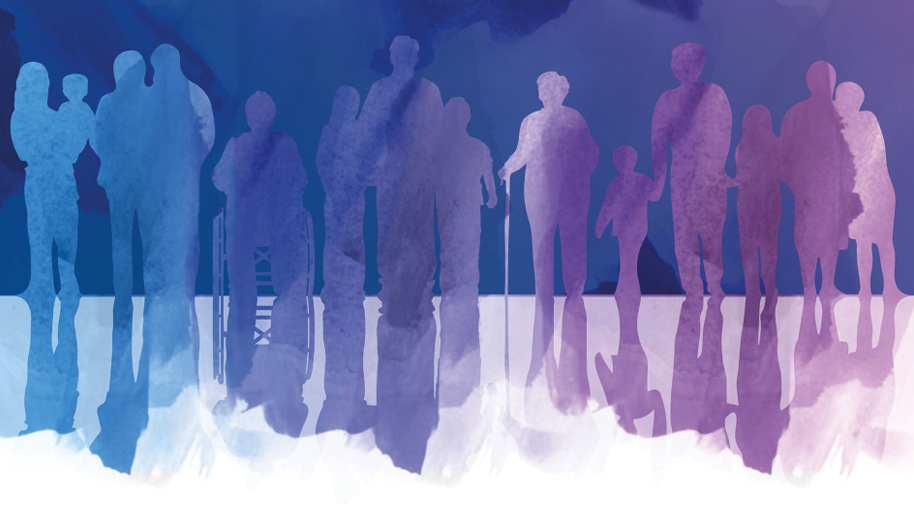British Columbia Poverty Reduction Strategy

Working with the BC Ministry of Social Development and Poverty Reduction (SDPR), we were brought on to design and lead province-wide engagement to inform an update to TogetherBC: BC’s Poverty Reduction Strategy. As part of the strategy’s legislation, it must be updated every five years. We designed a robust engagement program seeking to gather input specifically from people with lived and living experience of poverty across BC. This included regional Town Halls, small group sessions, an online survey, DIY conversation toolkit, and other tactics including working with the Minister to host roundtable conversations. To ensure accessibility and inclusivity, we built in measures including honoraria, translation and interpretation, counselling, wellness supports, and coverage of other costs such as transportation, childcare and food when necessary. The project engaged approximately 10,000 people across British Columbia, including approximately 12% identifying as Indigenous. We crafted a What We Heard Report which will be presented to government to inform an update to the poverty reduction strategy in 2024.
Situation
Based on extensive initial engagement in 2017-18, TogetherBC, British Columbia’s Poverty Reduction Strategy, was released in 2019 and sets a path to reduce overall poverty in BC by 25% and child poverty by 50% by 2024. With investments from across Government, TogetherBC reflects government’s commitment to reduce poverty and make life more affordable for British Columbians. It includes policy initiatives and investments designed to lift people up, break the cycle of poverty and build a better BC for everyone.
Targets, timelines, and accountability for TogetherBC are laid out in the Poverty Reduction Strategy Act. This act states that the strategy is to be updated every five years. To inform the update to the strategy, the Government of BC engaged us to design, facilitate and report back on what poverty currently looks like across BC and potential solutions to addressing it from the perspective of those with lived and living experience and community members.
COVID-19, the housing crisis, climate emergencies and inflation are some major local and global events that have significantly impacted British Columbians. Government needed to understand the experiences on the ground and how these events have impacted certain populations and issues in different ways, as well as solutions that are making a difference, new programs and services needed, and where government can prioritize over the next five years of the strategy.
Problem
Since the current government in BC came into power, more than 378,000 people have been lifted out of poverty, including 104,000 children. However, much of this can be attributed to COVID-19 relief supports from the federal government, as well as other temporary measures during the pandemic. Other important actions have been completed that are making a difference in reducing poverty, but for some groups, it is still not enough and challenges remain.
Hearing directly from people with lived and living experience was also a direct mandate of this engagement, which presents major challenges requiring innovative thinking to ensure accessibility and very low barriers to participation.
Solution
We designed and facilitated a comprehensive engagement program resulting in a What We Heard report summarizing all the input from throughout the engagement period. Engagement tactics for this project included:
- 5 virtual, regional town halls
- 30 small group sessions, both in-person and virtual throughout BC, in partnership with community and service organizations
- 4 roundtable sessions with the Minister
- Online survey accessible through the GovTogetherBC website
- DIY Conversation Toolkit with up to $2000 in funding available for groups to host their own sessions
- Consultation website and opportunity for written submissions
To ensure accessible engagement options, we coordinated significant supports including the following:
- Wellness support sheet for all sessions
- Language interpretation for virtual and in-person sessions when requested
- ASL and captioning for all town halls and for small group sessions when requested
- $100 honoraria for small group session participants and $30 honoraria for town hall participants
- Food/catering for all in-person small group sessions and roundtables
- Up to $2000 in supports for each organization looking to host their own conversations
Promotion of the opportunity to engage was conducted through widespread community outreach, including through organizations on the ground, digital channels, and ministry offices. A QR code and link to the engagement website was included on two rounds of income assistance payments, as well as the myselfserve.gov.bc.ca website where individuals can access their government assistance information.
Results
The project remained on time and on budget, despite a large scope with a higher than average amount of expenses. The project engaged approximately 10,000 people across BC, including:
8,337 survey responses, which included:
- 77% currently live in poverty
- 69% self-identified as living with a disability
- 44% identified as living with mental illness, substance challenge, or addiction
- 12% identify as Indigenous
- Over 300 downloads of the conversation toolkit and 18 organizations receiving funding support to host their own conversations
- Approximately 500 people in attendance through town halls, Minister’s roundtables, and small group sessions, including approximately half of which with lived and living experience
- Approximately 100 written submissions though the consultation website
